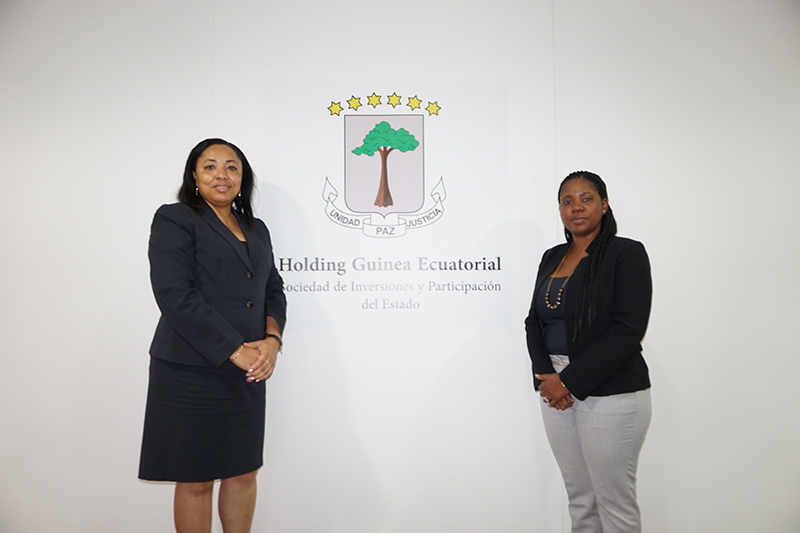Good relations and investments in infrastructure have created an ideal route into Central and West African markets

Buoyed by the funds from oil exports as well as the prestige of its newly discovered resources, Equatorial Guinea has begun to leverage its more prominent place on the world map to improve itself in ways that are not purely economic. Well aware that no country can thrive by oil alone, President Teodoro Obiang Nguema Mbasogo is determined to ensure that his country optimizes another of its finest assets: its privileged location as a gateway to Africa. With the Atlantic Ocean running along its western coast, Cameroon to its north, and Gabon running along its eastern and southern borders, Equatorial Guinea is a self-proclaimed “Singapore of Africa” – a strategically placed portal to a market of over 300 million consumers from nearby countries.
As such, Equatorial Guinea is keen to strengthen ties with its neighbors. It is one of the six member states of the Central African Economic and Monetary Community (CEMAC), which seeks to increase peace, security, and economic integration and diversification in the region, and it shares a regional Central Bank (BEAC) with other CEMAC members.
In 2014 the republic also became a full member of the Community of Portuguese Language Countries (CPLP). The only Spanish-speaking country in Africa, with French its second official language, it added Portuguese as a third official language as part of its CPLP membership bid.
Further adding to its esteemed value as a trade and transport hub is the fact that Equatorial Guinea also has some of the best ports, airports, and roads in the region – a region, it is worth mentioning, where even the most basic of infrastructure is still not uniformly available.
Some 80% of the national roads have asphalt, which is a huge advantage, especially during the muddy rainy season that plagues large swaths of Africa. New airports have been built in Corisco, Mongomeyen, and Annobon, and the ports of Bata, Malabo and Annobon have been expanded.
Following this development, the central government has been more easily able to plan and construct schools, hospitals, housing units, and even new tourist and sports installations, such as those built for the African Cup of Nations. Equatorial Guinea has thus become a preferred logistics platform in the Gulf of Guinea, and an ideal point of entry to West Africa for new investors.
“All of this transformation, all that we have here in this country – roads, buildings, the best hospitals, shopping centers, universities – these are not the product of cooperation with third parties; these were all investments funded by the state,” explains the President.
But now that this basic infrastructure is in place and the country has established a proven record of political and economic stability, it has successfully positioned itself to become more than just a country where foreign companies source their petroleum. In fact, Equatorial Guinea has distinguished itself as a ready, willing, and eminently well-prepared partner that is ripe for long-term foreign investment.
Following the completion of the first phase of Equatorial Guinea’s Horizon 2020 plan, the country has now entered phase two of the plan, which involves putting an emphasis on services that will benefit local communities. “The second phase of the plan is centered around developing the economy through private-sector initiatives,” says President Obiang. “We want to encourage both local and foreign investors to invest in the country across a variety of sectors, including mining, agriculture, tourism, and fishing.”
Mariola Bindang Obiang, General Director of Holding 2020 – the co-investment fund created by the government to facilitate the participation of the private sector in the diversification of the local economy – largely echoes these sentiments. She explains that while other neighboring countries went through periods of prosperity following the discovery of oil resources, Equatorial Guinea’s trajectory has been different. The government had the foresight to use the money earned from the exploitation of the country’s oil resources to build infrastructure – the roads, buildings, airports, airlines, telecoms, conference centers, hospitals, schools, and housing units that form the foundation of a more developed society. Once in place, the government could then move on to developing the industrial fabric of the nation, which at present, explains Ms. Bindang, is in its most primary stages. “Any investor who arrives now will see that it is the perfect time because we want to produce all types of things, and we have the basic infrastructure to facilitate production, but no production industries exist yet,” she says.
In addition, in a bid to attract investors with industrial savoir-faire, the government is offering tax breaks for companies that create a certain number of new jobs, or train local employees with the key skills to keep new industries up and running.
0 COMMENTS